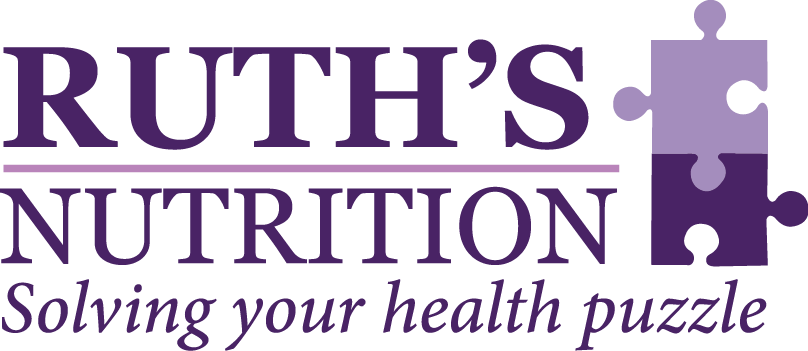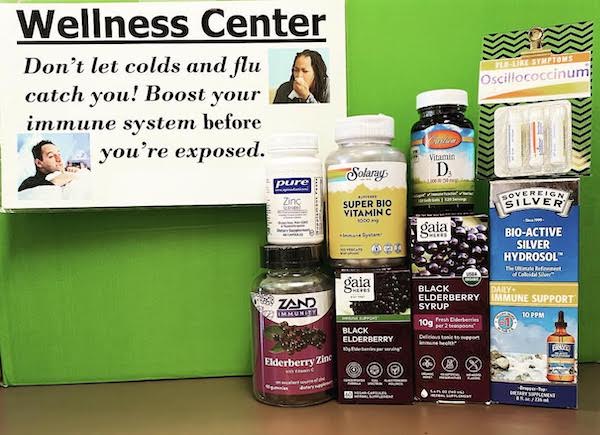It’s virus season again & time prepare your immune system

The bad news is we’re in for another triple threat illness season this winter. In addition to our usual cold and flu viruses, we’re still going to face COVID-19. The good news is the way we prepare our immune systems to fight each one has a lot of overlap because all of them affect the upper respiratory system. With a little tweaking, your arsenal of virus fighters can be ready to do battle against them all.
Obviously, frequent hand-washing, avoiding touching your face, keeping your distance, and wearing a mask offer some protection from cold, flu, and COVID-19 viruses. Vaccines are available for both flu and COVID-19. Good sleep is another foundational practice, without it your immune system suffers. After that, you can bring on specific supplements to increase your armory.
The Baseline Shield
These supplements can help your immune system be ready to meet just about any respiratory virus on the battlefield:
Vitamin D – This steroid hormone is an immune system modulator that reduces inflammatory cytokines while increasing macrophage function. It activates immune system antimicrobials and suppresses superinfections. Studies show it reduces the likelihood of upper respiratory infections. In those who were deficient in Vitamin D, studies show supplementation improved respiratory tract infections. Functional medicine doctors recommend lab ranges of >50 to <80 ng/mL serum 25-hydroxy. Ask your doctor to check your levels.
Vitamin A – This micronutrient is critical for protecting the integrity of mucus membranes. It is considered anti-inflammatory, as it modulates T helper cells and cytokine production. Functional medicine doctors recommend doses up to 10,000-25,000IU/daily. Your multivitamin probably has an appropriate dose.
Vitamin C – This vitamin supports the immune system through several mechanisms. Supplementing with Vitamin C appears to help both prevent and treat respiratory and systemic infections. Vitamin C has been used in hospital ICUs to treat COVID-19 infection. Functional medicine doctors recommend 1-3 grams daily.
Quercetin – This plant compound has been shown to have antiviral effects against both RNA (influenza and coronavirus) and DNA (herpes) viruses. It is both antioxidant and anti-inflammatory, modulating viral replication and mast cell stabilization. Quercetin also indirectly inhibits the NLRP3 inflammasone system, which is activated in COVID-19 (See COVID-19 Specifics section below). Functional medicine doctors recommend 500mg 3-6 times daily.
Zinc – This mineral both supports the immune system and suppresses viral attachment and replication. Supplementing with zinc has been shown to reduce severity and duration of viral infections. It also reduces the risk of lower respiratory infections, which can be involved in COVID-19. Studies show in patients hospitalized with COVID-19, those who were deficient in zinc had greater complications. Functional medicine doctors recommend 30-60 mg daily, taken in smaller divided doses.
Elderberry – This fruit has long been used as an anti-viral, and clinical studies show it is active against both influenza A and B viruses. Animal studies indicate it is most effective in the prevention and early infection of respiratory viruses. Earlier last year reports appeared warning against using elderberry in COVID cases because in test tubes the fruit can stimulate pro-inflammatory cytokines. That’s true, but knowledgeable scientists point out that elderberry also promotes anti-inflammatory cytokines, with the net result being anti-inflammatory action. The consensus now is that elderberry is safe to use in COVID cases.
NAC – N-acetyl cysteine is an amino acid that promotes the production of glutathione, the body’s most potent antioxidant. Studies show that those taking 600 mg NAC twice daily experienced significantly fewer influenza-like episodes. NAC also thins mucus. Recent studies show it reduces the risk for mechanical ventilation and mortality in patients with COVID-19 pneumonia.
Andrographis – This herb has long been used in traditional Indian and Chinese medicines as an immune system modulator. It supports the healthy function of natural killer cells, and studies show it reduces severity and duration of both colds and flu. Functional medicine doctors recommend 200 mg two to three times daily. The herb is currently being studied for its usefulness in COVID-19 infection.
COVID-19 Specifics
Since all of these viruses involve illnesses that promote inflammation, anti-inflammatories are beneficial no matter which you catch. That said, COVID-19 specifically activates the NLRP3 inflammasome system, which can lead to a hyperactivated immune system – also called cytokine storm.
Curcumin – Derived from the spice turmeric, curcumin is a well-known potent anti-inflammatory. Recently studies show it modulates the NLRP3 inflammasome system, making it worthy of consideration when fighting a COVID-19 infection. Functional medicine doctors recommend 500 mg two to three times daily.
Melatonin – You may know this supplement as a sleep aid, but it also has anti-inflammatory effects. It, too, inhibits the NLRP3 inflammasome system, inhibiting hyperactive inflammatory cytokine release. Research is proposing using this supplement as a therapeutic agent in COVID-19 patients. Functional medicine doctors recommend 5-20 mg at bedtime.
Resveratrol – This plant compound commonly found in grapes acts as an antioxidant. It also has been found to have antiviral properties and is active against the coronavirus that causes MERS in vitro. It also is active against the NLRP3 inflammasome system. Functional medicine doctors recommend 100-150 mg daily.
EGCG – Epigallocatechin gallate is a plant compound found in green tea. Like the others listed above, it has been shown to modulate the NLRP3 inflammasome, and preliminary evidence shows it may inhibit viral replication of the COVID-19 coronavirus. Functional medicine doctors recommend 4 cups of green tea or 225 mg daily.
REFERENCES
Functional Med Immune Support in COVID era




